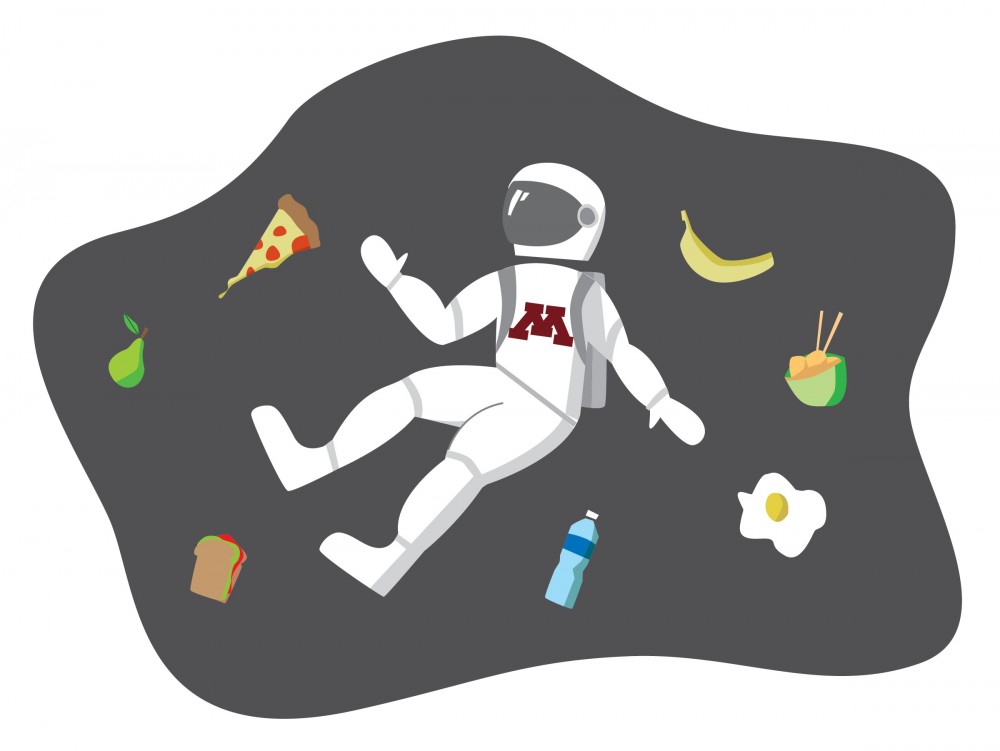A recently released NASA-funded study explored diet variety, a concern for populations, including students, who lack freedom of food choice.
The study, published in January, was completed by a team of University of Minnesota researchers who explored the variety in diets of adults with stable food security. They found diet variety is key to satisfaction, but students and astronauts can lack this option.
“[NASA has] always been very concerned about the lack of variety they have if you’re up in the space station,” said Zata Vickers, one of the researchers and a professor in the University’s Department of Food Science and Nutrition.
The study, which surveyed 102 food-secure, free-living adults, found that individuals ate an average of 110 unique foods over four weeks. Each participant had the freedom to choose their diet, and most indicated a high level of satisfaction, regardless of the variety they chose for themselves.
Vickers and graduate student Lauren Wisdorf recognized that many groups, besides astronauts, struggle to find variety, such as those living in dormitories or nursing homes.
“Students complain that there’s not enough variety,” said Vickers.

A number of students and dietitians agree that variety is important for satisfaction and happiness.
Students in the dormitories are required to have some type of meal plan, said Jenna Brott, Health and Wellness Coordinator for the University of Minnesota Dining Services.
“It’s important to have a variety of options,” Brott said. “Even with a four-week menu cycle, there can still be some menu fatigue.”
Brott‘s solutions to menu fatigue include special “limited time offers,” such as grain bowls or a macaroni-and-cheese bar.
Clara Holder, a junior studying nutrition and a volunteer with the Nutritious U food pantry, said the residence hall cafeterias are good and continue improving. Still, she said she prefers the flexibility of cooking in her own apartment, because it saves money and offers more variety.
“If you’re able to choose what you want, you feel happier,” said Rebecca Leighton, the health promotion associate at Boynton Health. “Food is more than just nutrition, … it’s the cultural piece, the social pieces [and] the comfort. We eat for so many other reasons than just hunger cues.”
But those hunger cues still worry several students. Boynton’s 2018 College Student Health Survey found that nearly 18 percent of students on the Twin Cities campus worry about food security.
Nutritious U, established by Leighton in 2017, offers a variety in diet to those struggling with food insecurity. Initiatives like the federal food stamp program also help, Leighton said, as food-insecure students often do not have the resources to budget for things like fresh produce or certain favorite foods.
“I just think that the food pantry is an awesome resource, but we’re only there four days a month, like what do people do the rest of the time?” Holder said. “It would be cool see more initiative coming out that kind of addressed the problem in a more permanent way.”









